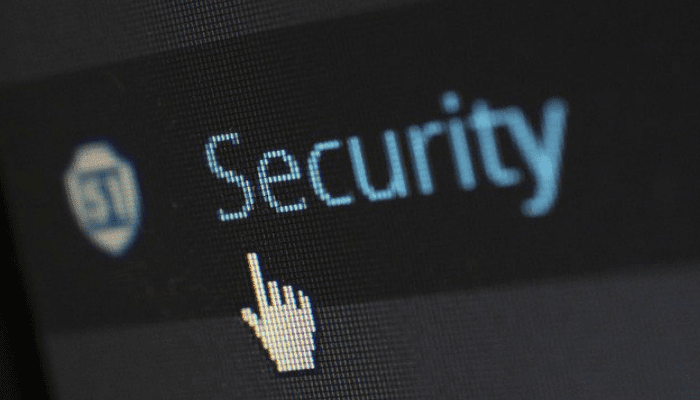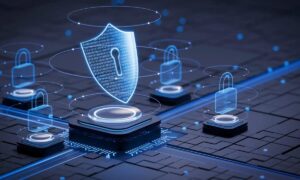Going to a university is such a huge step and a great advancement in your education; you will get lots of useful theories, knowledge, friends, and general experience about life from much the same people as you. But one of the dreadful experiences you should try to avoid is being a victim to cyber-crime/bullying, online theft, or data theft.
While it is somewhat impossible to go through the university without loads of help from the web, you should also be wary of things you do there. Yes, every student has the Internet as a dear ‘friend’ and helper, seeing that it was developed on university campuses. But recklessness on the web is just as devastating as an Army General leaving his headquarters unguarded in search of feeble victories.
The horrible thing about internet attacks is that it can morph in any form, and hackers continue to seek other ingenious means of wreaking havoc on your device remotely. It will be foolhardy to leave the protection of your online data and ‘health’ solely to the ‘programmed’ actions of your device.
Here are the 5 most important actions you should take to ensure your online safety in the university;
When it comes to security (esp. Online) you have to be intentional, especially in a wide, diverse, and free environment like a University campus. You can compare undergraduate courses in different universities if you are not sure about which university to apply to.
Passwords and their Complexity
Using passwords to create an exclusive gateway into your profiles or online data is one of the most popular forms of cybersecurity. When creating passwords, use characters that are in every way unique and not-easily decipherable; this is why most online sites suggest passwords. Most people erroneously use only their names/known letters in the characters in their passwords, which is very risky.
To reduce the risk of these, cyber experts put forth some rules on creating passwords or “password complexities.” They involve creating passwords that contain characters such as;
- Above 8 characters in length
- Special Characters
- Upper and Lowercase letters
- Numbers
It increases the odds/probabilities of a hacker’s computer to suggest the passwords you use. The more the characters and length, the difficult it becomes to crack.
Speaking to your fellow students
Ever heard the phrase “you are only as strong as your weakest member”? Many banks have lost millions from a malware attack unknowingly carried by one of their staff.
Your safety tips and cautions will only be useful if your fellow students are also conscious of their safety. It is common to exchange files and connect devices when you are in the university, but what happens when your fellow students’ device is corrupted/breached with a virus?
The sad thing about your online security is that even those that hang out with you have to be cautious in their use of the web. Therefore, you need to explain to your friends why they have to take their security seriously.
Anti-Virus Software
A popular way for hackers to get access to your files or disrupt your device working is to move malicious software or programs to your device (Virus). Most viruses do not disrupt your computer immediately, often opting for chronic and gradual degradation, plus they can serve as a portal for people to gain access to your device remotely.
Anti-Virus programs are ‘written’ against such programs to ‘hunt’ and stop the suspicious programs. Although most devices come with their Anti-Virus software, they are mostly ineffectual against upgraded malware programs. Some types of anti-virus programs are;
- Malware signature Antivirus: Detects, hunts, and eradicates known viruses and spyware. Popular ones are Windows Defender, Avast, Bitdefender
- System monitoring: Suspects and studies programs (secondary) activities that run on the system
- Machine learning Anti-virus: Gathers data from connected devices and reports and has an algorithm to flag or warn users.
Using secure browsers
While Anti-Spywares and other methods mentioned here are mostly reactive measures, using secure browsers count as proactive and safer methods of ensuring your safety online. Secure browsers help to stop third-party tools like cookies, bugs, and malicious links.
Cookies are tools that help in tracking internet data; they contain your browsing history, usernames, passwords, and other activities you perform on the pages you visit. Hackers can easily track your identity and personal data with these cookies when you visit malicious pages without secure browsers. Examples of secure browsers are Firefox, Chrome, Chromium, Tor, etc.
When using secure browsers;
- Do not go about recklessly installing Plug-ins on your browsers; they are likely gateways for a virus to infiltrate your device.
- Always make sure your browsers are up to date, and be quite sure to update from the manufacturers.
- Allow your local anti-virus to access your browser, to help with scanning pages and programs.
Responsible use of the Social Media
It is now a trend for people to ‘publish’ their daily activities online through Facebook, Instagram, Snapchat, Twitter, and so on. And by doing this, they reveal to ‘would-be’ hackers some of their private data such as their locations, schedule, identity, and personal lives.
While it is not a bad thing to post pictures about a hiking trip with friends or the grand hip-hop concert, you should do them responsibly. Take such precautions like;
- Turn off Location on your device when not in use.
- Make time to personalize your privacy settings on your device (hackers spy on people this way)
- Avoid posting controversial/personal issues on Social Media
- Take time to understand external links before clicking them.
- Use strong passwords and avoid sharing them.
Wrapping Up
Of all actions you can take about your security and safety, the most important is being intentional and cautious of your online activity.
You can also use VPNs when browsing; they help you to secure your activities online. When you shop online, remember to clear all your card information and passwords because malware attacks can be ‘two-ways’.
Always remember that internet carelessness is just as fatal as handing over the keys of your property to a known Hoodlum.



































